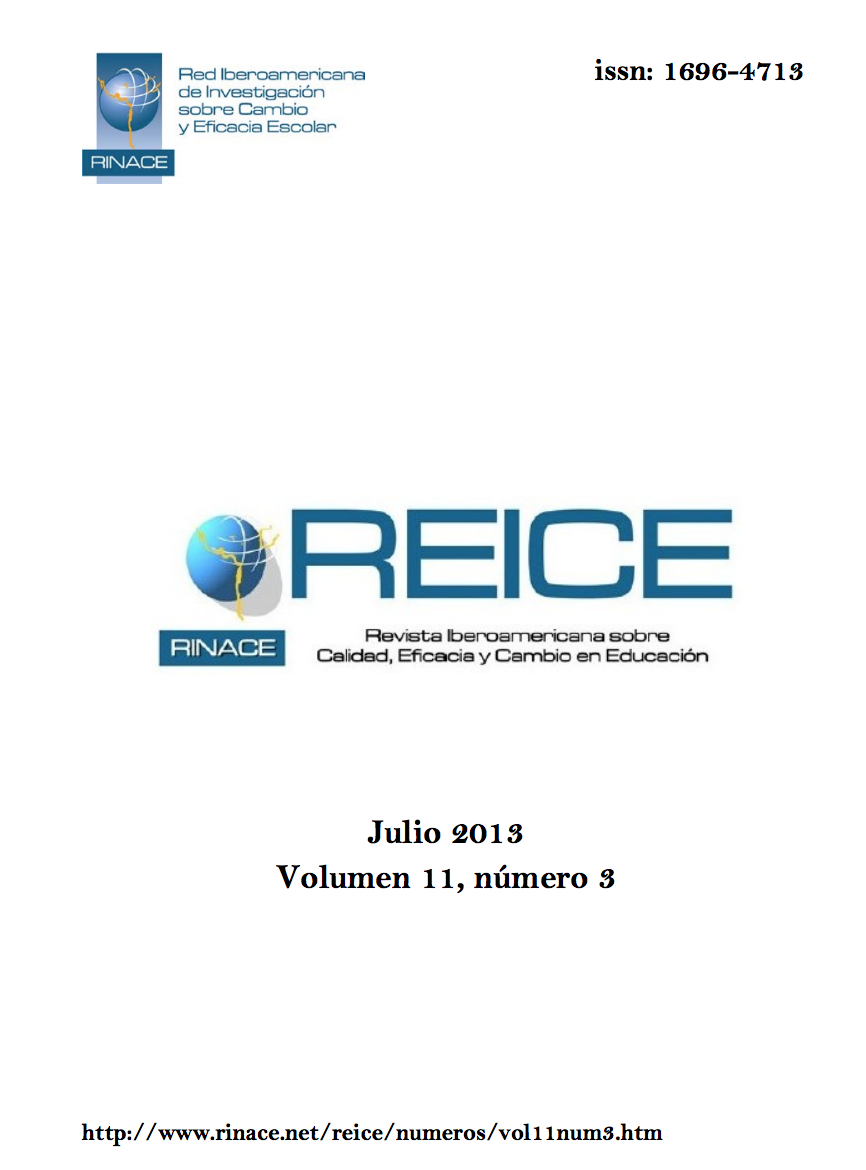Self-Knowledge of the Learning Styles, Essential Aspect in the Study Activity
Keywords:
Quality, Effectiveness, Change, Improvement, Equity, InnovationCopyright (c) 2023 REICE. Revista Iberoamericana sobre Calidad, Eficacia y Cambio en Educación

This work is licensed under a Creative Commons Attribution-NonCommercial-NoDerivatives 4.0 International License.
Abstract
The present investigation was carried out with the objective of contributing to the self- knowledge of the styles of learning of the professional futures of the education of the specialties Physical Mathematics, with the perspective of establishing relationships: styles of learning-correct selection of learning strategies and of teaching, from the own conception of the system of classes and the pedagogic reality of the classrooms. For it was imparted it an optional course about styles of learning whose basic bibliography constituted it a pamphlet elaborated to the effect that provided useful tools for: to determine the style characteristic of learning, to improve the study activity, and to select learning strategies correctly and of teaching. The course motivated to deepen in these topics, and it demonstrated the necessity to develop a teaching-learning process that takes in consideration the individual differences of the students in the classrooms and influence significantly in the capacity to achieve satisfactory school goods.
Downloads
References
Addine, F. (2004). Componentes del proceso de enseñanza-aprendizaje: En temas de introducción a la Formación Pedagógica. Ciudad de La Habana: Editorial Pueblo y Educación.
Arango, R. (2007). La autoevaluación institucional como factor de transformación de la dirección educacional en los centros politécnicos. Tesis doctoral no publicada, Instituto Superior Pedagógico para la Educación Técnica y Profesional, Cuba.
Borroto, E.R. (2004). Acreditación y evaluación universitarias. Revista Cubana Educación Media Superior, 18(3), 1-3.
Castellanos, D. (2005). Aprender y enseñar en la escuela: una concepción desarrolladora. Ciudad de La Habana: Editorial Pueblo y Educación.
de la Orden, A. (2012). Desarrollo y validación de un modelo de calidad universitaria como base para su evaluación. Revista Electrónica de Investigación y Evaluación Educativa, 10(3), 1-2.
Delors, J. (1996). La Educación encierra un tesoro. México: Ediciones UNESCO.
González, A.M. (2002). Nociones de Sociología, Psicología y Pedagogía. Ciudad de La Habana: Editorial Pueblo y Educación.
López, F. (2005). La evaluación del desempeño en la escuela del futuro profesional de la educación. Ciudad de La Habana: Editorial Pueblo y Educación.
Martínez, E.M. (2012). Interacción de la creatividad con los estilos de aprendizaje en estudiantes universitarios de psicopedagogía de Galicia. REICE. Revista Iberoamericana sobre Calidad Eficacia y Cambio en Educación, 10(8), 1-3.
Murillo, F.J. (2012). Escuelas de Calidad para la Transformación Social. REICE. Revista Iberoamericana sobre Calidad Eficacia y Cambio en Educación, 10(1), 1-3.
Pérez, N.P. (2012). Temas seleccionados de la didáctica de la Física. La Habana: Editorial Pueblo y Educación.
Pérez, O.L. (2012). La dirección del proceso educativo y la evaluación del aprendizaje. Revista de Investigación Educativa, 10(54), 3-5.
Rico, P. (2003). Compendio de Pedagogía. Ciudad de La Habana: Editorial Pueblo y Educación.
Rodríguez, E. (1994). Criterios de análisis de la calidad en el sistema escolar y sus dimensiones. Revista de Investigación Educativa, 5(2), 3-4.
Tiana, A. (1996). Evaluación de la calidad de la Educación. Revista de Investigación Educativa, 10(9), 2-3.
Tünnermann, C. (1996). La Educación Superior en el umbral del siglo XXI. Caracas: Ediciones CRESALC/UNESCO.
